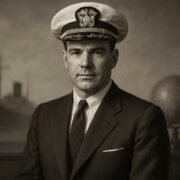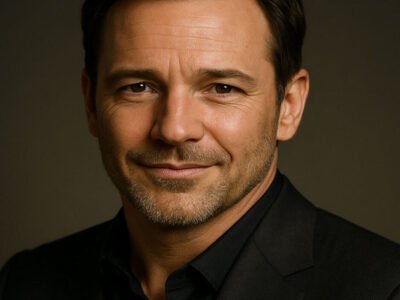When J. Steven White first stepped onto the stage at Oregon Shakespeare Festival in 1970, few could have predicted the remarkable trajectory his career would take. Today, more than fifty years later, this versatile performer stands as one of America’s most respected stage combat experts and theater educators.
White’s name appears on Broadway marquees and university faculty rosters alike. His unique blend of acting prowess and technical expertise has made him an indispensable figure in American theater. Whether choreographing sword fights for Shakespeare productions or mentoring the next generation of actors at NYU, White continues to leave his mark on every project he touches.
Early Career and Foundation in Theater
The Oregon Shakespeare Festival proved to be the perfect launching pad for White’s theatrical ambitions. In 1970, the young performer discovered not just his love for classical theater, but also his natural talent for stage combat. This discovery would prove pivotal in shaping his entire career trajectory.
White’s time at Southern Methodist University had prepared him well for the rigors of professional theater. The university’s comprehensive program gave him both the theoretical knowledge and practical skills needed to excel. However, it was the hands-on experience at Oregon that truly ignited his passion for the craft.
Those early years were marked by intense learning and experimentation. White threw himself into every aspect of theater production, from acting to fight choreography. This willingness to embrace multiple disciplines would later become his greatest professional asset.
Broadway Success and Notable Productions
Broadway beckoned, and White answered with a string of memorable performances. His resume reads like a who’s who of prestigious productions: “The Color Purple,” “Uncle Vanya,” “A View From the Bridge,” “The Lion in Winter,” and “All My Sons.” Each role showcased different aspects of his considerable talents.
The opportunity to serve as Associate Director for “Shogun: The Musical” marked a significant milestone in White’s career. This behind-the-scenes role allowed him to influence the creative vision of an entire production, demonstrating his deep understanding of theatrical storytelling beyond just performance.
Perhaps most notably, White worked on two separate productions of “Burn This,” collaborating with Edward Norton in one version and Adam Driver in another. These experiences working alongside A-list Hollywood actors cemented his reputation as a trusted professional capable of elevating any production.
Mastery of Stage Combat and Fight Direction
What sets White apart from many of his contemporaries is his groundbreaking work in stage combat. As one of the first Americans to formalize stage combat instruction, he essentially helped create the standards that theaters across the country now follow.
His partnership with the New York Shakespeare Festival spans an incredible 32 productions. From “Julius Caesar” to “Macbeth” to “King Lear,” White has choreographed some of the most memorable fight scenes in modern Shakespeare productions. Working with stars like Jeffrey Wright, Alec Baldwin, and Liev Schreiber, he’s proven that stage combat can be both artistically compelling and completely safe.
The technical precision White brings to his work is matched only by his artistic vision. He doesn’t just choreograph fights; he creates moments of dramatic truth that serve the story while keeping performers safe. This balance between artistry and safety has made him the go-to expert for productions requiring complex combat sequences.
Teaching Legacy at Prestigious Institutions
For 33 years, White has been shaping young actors at NYU Tisch’s Graduate Acting Program. His courses in stage combat and competitive fencing have become legendary among students, many of whom go on to successful careers in theater and film.
His teaching journey began five decades ago at American Conservatory Theatre, where he spent 11 transformative seasons. Those early teaching experiences taught him how to balance rigorous technical instruction with creative encouragement, a skill that has served him well throughout his academic career.
The proof of White’s teaching effectiveness lies in his former students’ success. Liev Schreiber and Michael C. Hall, both of whom studied under White at NYU, have gone on to become household names. The fact that White later worked professionally with these former students speaks volumes about the mutual respect and lasting relationships he builds with those he mentors.
Leadership at Stella Adler Studio
At the Stella Adler Studio of Acting, White serves as Supervising Producer of the Harold Clurman Lab Theater Company. In this role, he has produced 24 productions, ranging from classical works like “Three Sisters” to contemporary pieces by emerging playwrights such as Halley Feiffer and Zayd Dohrn.
This position allows White to bridge the gap between education and professional theater, providing students and emerging artists with opportunities to work on high-quality productions. His leadership in this capacity demonstrates his commitment to fostering new talent and supporting the development of contemporary theater.
The diversity of productions under his supervision reflects his broad understanding of theatrical literature and his willingness to support both established classics and innovative new works.
Personal Life and Industry Connections
White’s personal life intersected significantly with the entertainment industry through his marriage to Academy Award-nominated actress Annette Bening from 1984 to 1991. This relationship connected him to Hollywood’s elite circles and provided additional insight into the broader entertainment landscape.
While their marriage ended in divorce, the relationship represents an important chapter in White’s life that linked his theater-focused career with the film industry. This connection likely provided him with valuable perspectives on different aspects of performance and the entertainment business.
His personal relationships within the industry have undoubtedly contributed to his professional success and his ability to work with high-profile actors throughout his career.
Recent Work and Continuing Impact
Even in recent years, White continues to contribute to the entertainment industry. His work as a stunt coordinator on “Sandstone” (2022) demonstrates his ongoing relevance and adaptability to contemporary production needs.
His collaboration with choreographer Edwaard Liang on ballet productions of “Romeo and Juliet” shows his versatility in applying stage combat expertise to different performance mediums. These productions for the Tulsa Ballet and BalletMet in Columbus, Ohio highlight his ability to work across artistic disciplines.
White’s continued activity in the field, combined with his ongoing teaching responsibilities, ensures that his influence on American theater remains strong and current.
Legacy and Recognition in Entertainment
After more than five decades in the entertainment industry, J. Steven White has established himself as a multifaceted professional whose contributions span performance, education, and artistic leadership. His pioneering work in stage combat has influenced countless productions and performers.
His dual role as both practitioner and educator has allowed him to shape the industry from multiple angles, ensuring that his expertise and artistic vision continue to influence new generations of theater professionals.
White’s career exemplifies the possibilities available to those who combine artistic talent with dedication to craft and education, making him a true celebrity within the theater community and a respected figure in the broader entertainment industry.













